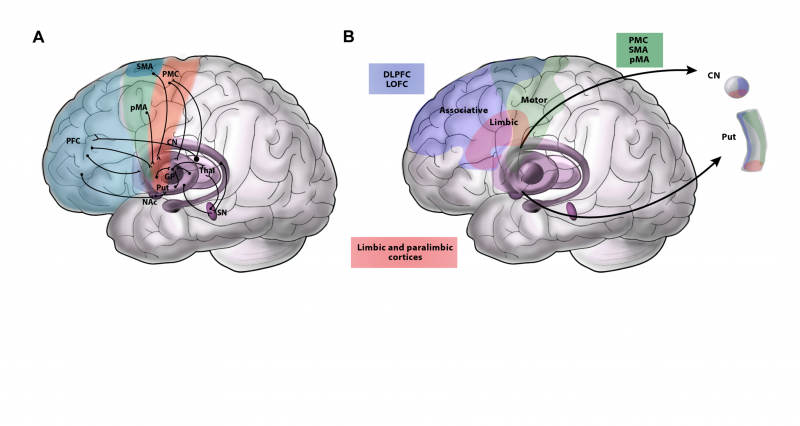Abstract:
Within the language domain, movement disorders triggered by frontostriatal damage are characterized by deficits in action verbs, motor-language coupling, and syntax. However, these impairments have not been jointly interpreted under a unifying rationale or integratively assessed in terms of possible clinical implications. To bridge these gaps, here we introduce the “disrupted motor grounding hypothesis”, a new framework to conceive such impairments as disturbances of embodied mechanisms (high-order domains based on the recycling of functionally germane sensorimotor circuits). We focus on two relevant lesion models: Parkinson’s and Huntington’s disease. First, we describe the physiopathology of both conditions as models of progressive frontostriatal impairment. Then, we summarize works assessing action language, motor-language coupling, and syntax in samples at early and preclinical disease stages. To conclude, we discuss the implications of the evidence for neurolinguistic modeling, identify key issues to be addressed in future research, and discuss potential clinical implications. In brief, our work seeks to open new theoretical and translational avenues for embodied cognition research.


